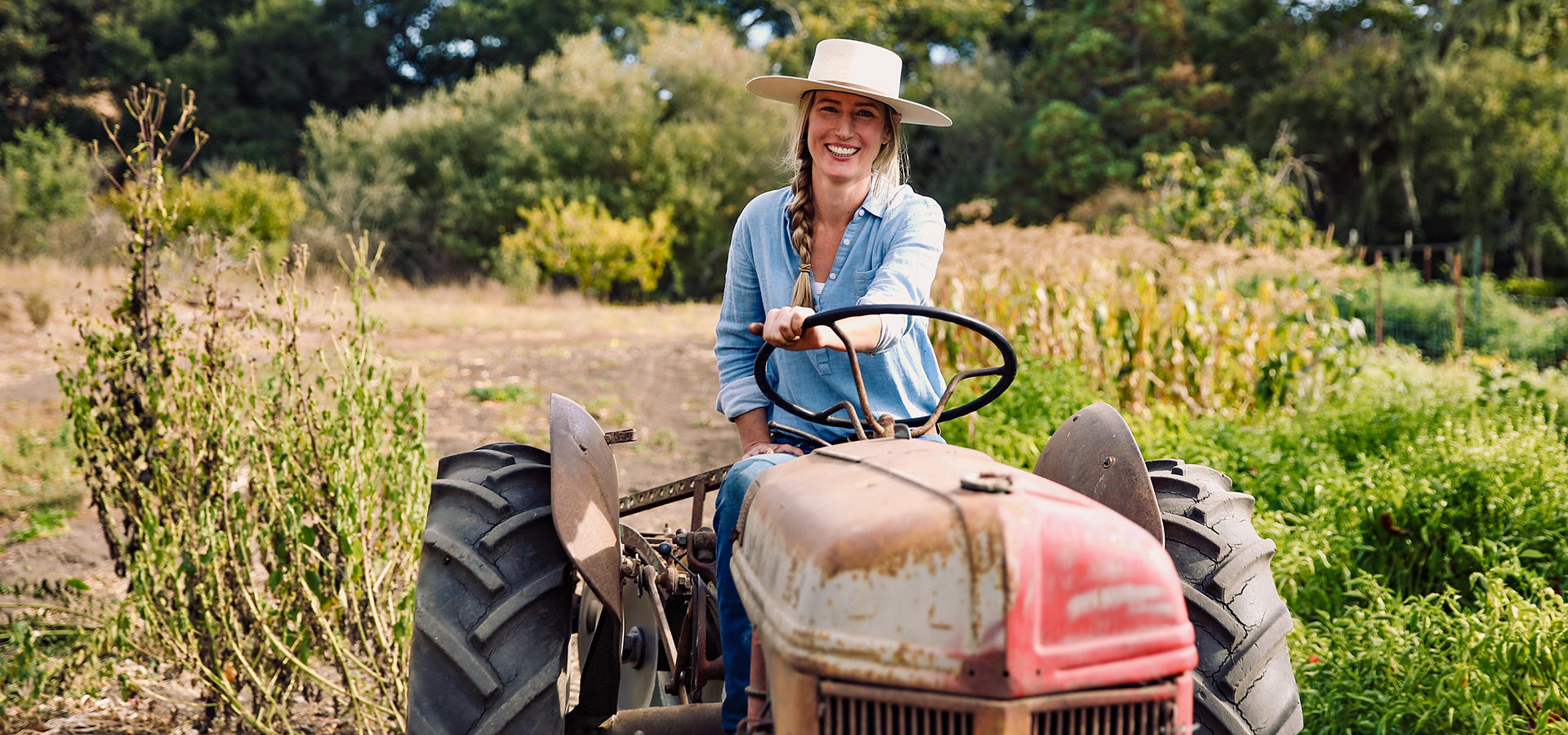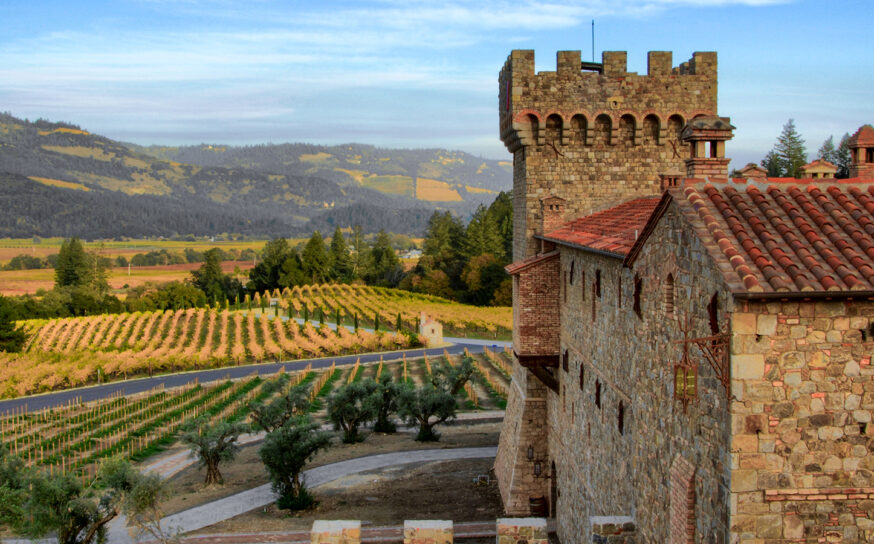With Deep Roots in California Ranching, Elizabeth Poett Brings Her Bucolic Lifestyle to an Eager Audience
Ranch to table.
-
CategoryFarm + Table, Film + TV, Homes + Spaces, Small Businesses, Sustainability
-
Written byBonnie Graves
-
Photography courtesy ofMagnolia Network
Pandemic lockdowns provided many families with all too much time to consider lifestyle. For many, getting out of the city suddenly seemed doable in a way that was previously far-fetched. If you developed a serious Zillow problem or fell down the #vanlife rabbit hole, you’re not alone. And with remote work and telecommuting now solidly embedded in the American worker’s psyche, maybe you can live out that bucolic fantasy.
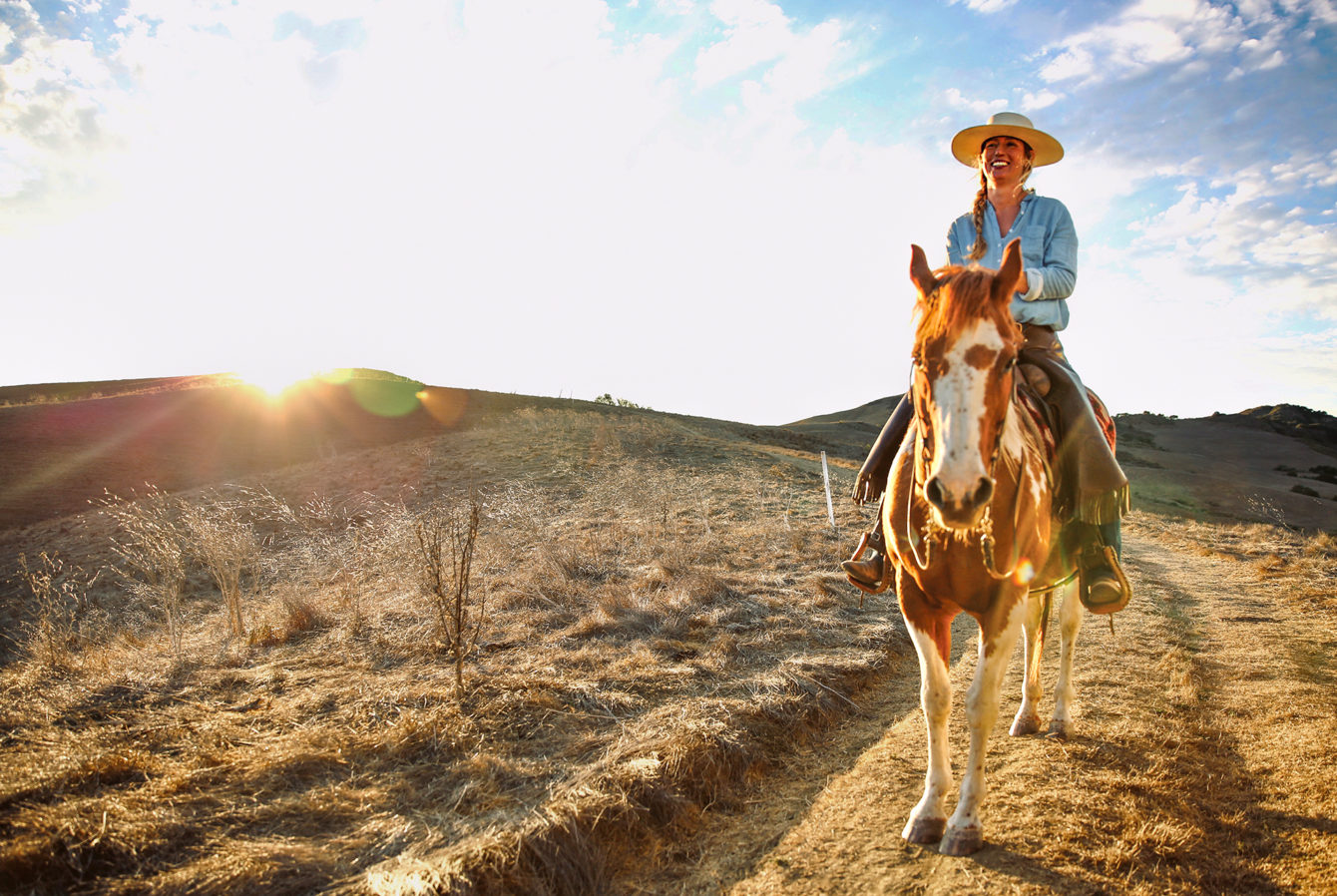
Or you can just tune in to Magnolia Network’s new Ranch to Table series and experience all that life on Rancho San Julian offers. From the juggernaut that is Waco’s power couple—Chip and Joanna Gaines—comes a new streaming service that focuses on what their core audience can’t seem to get enough of: wholesome, family-based content where food, kids and home are seamlessly integrated.
Rising star Elizabeth Poett is in many ways just what the network ordered. An appealingly earthy, self-effacing mom of two boys who married the handsome rancher from down the road, Elizabeth and her new show are a winning combination. Watching her opening episode made me suddenly (and somewhat inexplicably for this black-clad New Yorker-until-I-die) yearn for a cowboy hat and a pitchfork so I too could toss hay bales and love on Clover the orphaned baby lamb, whom Elizabeth nursed from infancy.
What sets Ranch to Table apart from similar fare is authenticity. Elizabeth is not some newbie donning that cowboy hat for the sake of television. If anything, you get a sense that both she and especially her camera-shy husband, Austin, were somehow talked into allowing cameras into their private world.
Elizabeth is a beauty, and those cameras certainly love her blue eyes and jean-clad, slender figure—but she is not a fake. Rather she is the great-great-great-great-granddaughter of José de la Guerra, who homesteaded on Rancho San Julian in California’s Central Coast in the early 1800s. That makes Elizabeth the eighth generation to work the land, and it continues to be hard work. Far from a vanity farm, this is real ranch life—one in which 500 head of cattle must be tended, in addition to managing horses, chickens, a thriving apiary and fruit orchards.
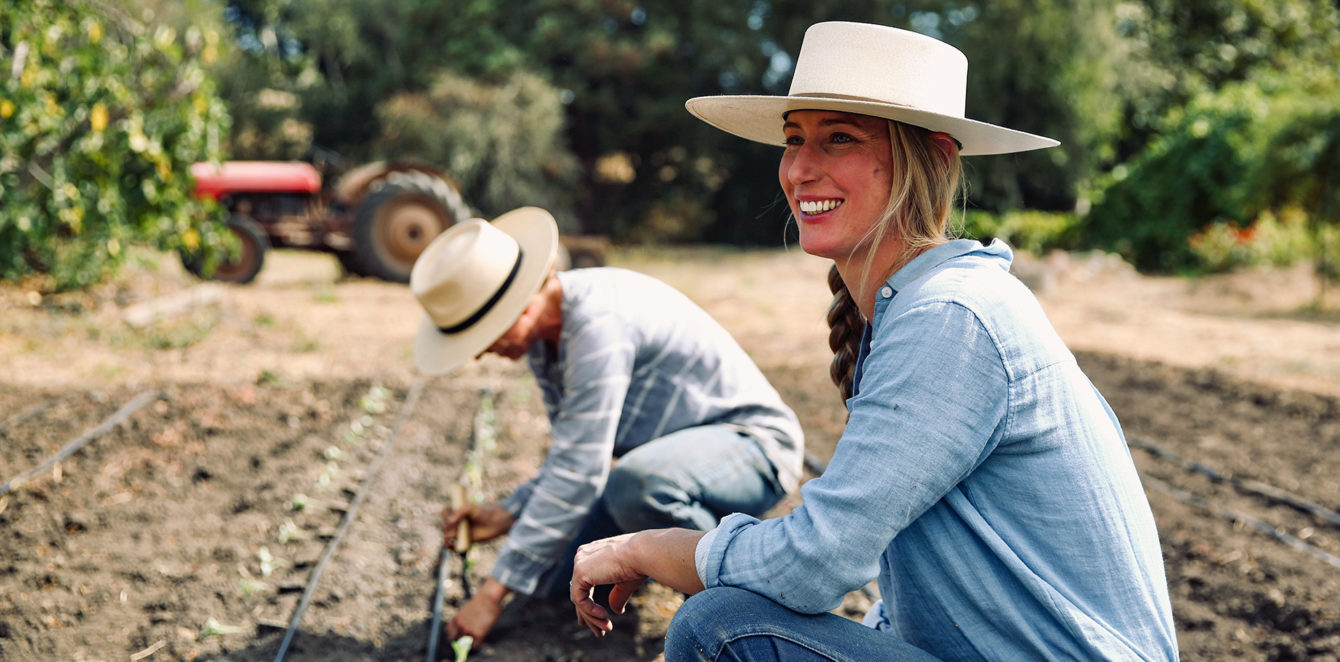
Central to the series is Elizabeth’s kitchen, which is in fact the same kitchen in the same house where her great-grandmother cooked. Fearing an earlier pandemic—the Spanish flu of 1918—that grandmother fled Santa Barbara to return to the safety and isolation of the ranch and had the house floated down the coast on a barge to be installed back at San Julian.
Nowadays Elizabeth’s parents live just down the road, and her two cute boys spend a good amount of time being shooed out of the historic house to go hang with Grandma and Grandpa. This alone made me positively green with FOMO envy. If only my kids could similarly scamper down the road like that to Grammy and Grandpa’s!
“I believe that a ‘ranch table’ is more of a feeling and a way of life. It is all about enjoying simple, fresh food with friends and family. It does not need to be complicated. It is all about enjoying a meal together.”
This is the essential appeal of Ranch to Table—it’s like an updated version of The Waltons but with real people who know what they’re doing. Viewers simultaneously like Elizabeth and Austin while envying the lifestyle. I haven’t watched the whole series yet, but I did find myself hoping there’d eventually be some content around cow pies and maybe the abattoir alongside all those scenic truck tours, farm B-roll and darling baby animal close-ups.
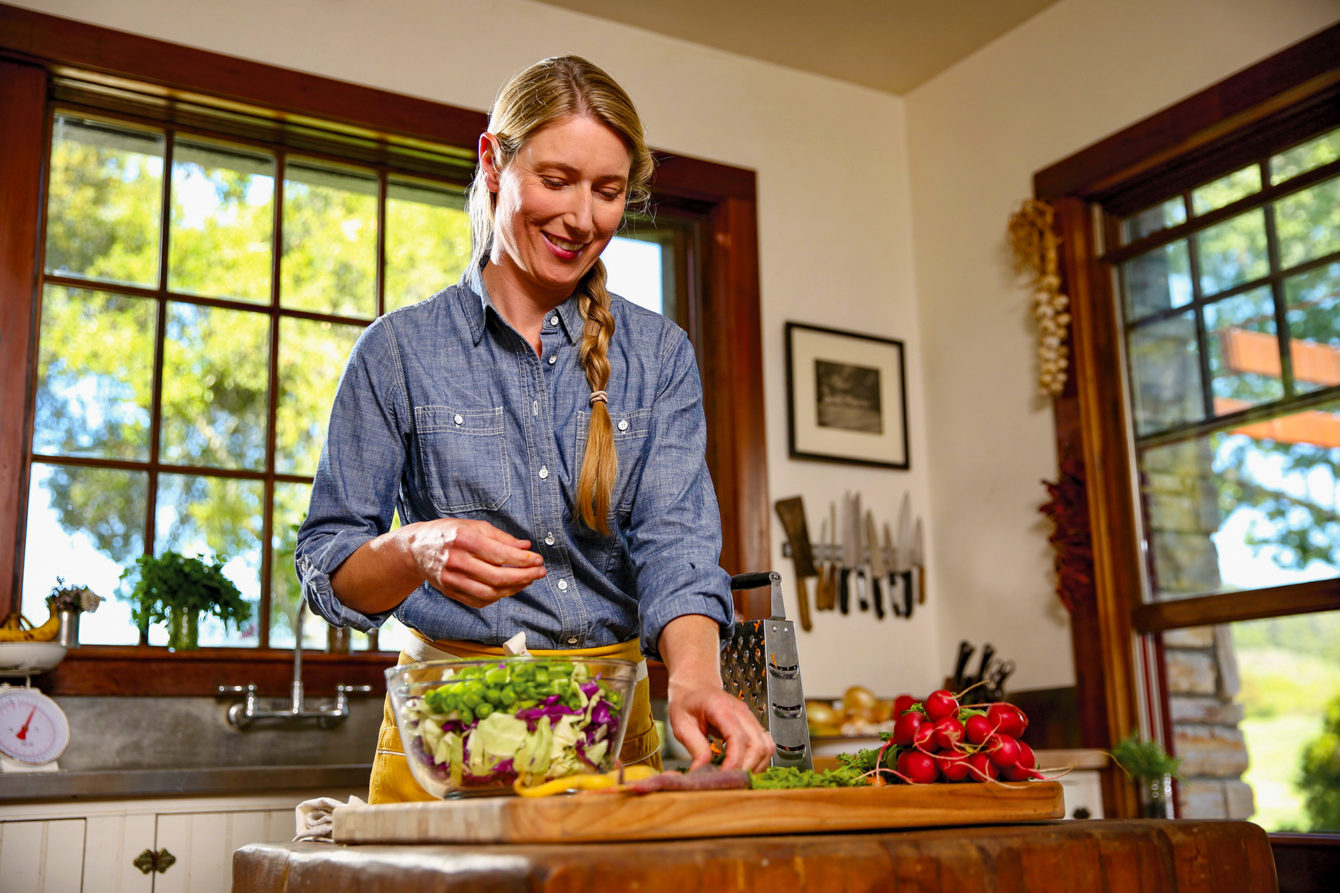
But no matter. What does work exceptionally well in this series is the integration of farm goods into the lifestyle. Throughout the series, Elizabeth and Austin do a great job of tracing the path of animals, vegetables and farm goodies in a way that makes “ranch to table” more than just a title.
Most of what the family consumes is harvested from their land, and it is an inspiring if exhausting idea. No Target runs from Rancho San Julian, and no DoorDash likely either. Elizabeth is featured making an early-morning galette crust to chill before heading out for grueling ranch chores. It later is finished with local apples and blackberries to round out an epic ranch dinner that features Santa Maria-style tri-tip raised on their ranch with fire-roasted salsa made from peppers that Elizabeth harvests by hand.
Theoretically, I would like to make homemade salsa from my theoretical bed of heirloom peppers, but there are so many amazing Mexican takeout joints near my home that I am frankly too lazy. But I felt inspired watching Elizabeth make it.
We caught up with the very busy Elizabeth to ask her a few questions. From large-batch summery pesto to harvesting her Hachiya and Fuyu persimmons, her approach to cooking is refreshingly unfussy and focuses on seasonality and color. You’ll want an invitation to hang out and eat with this multitalented momma, believe me.
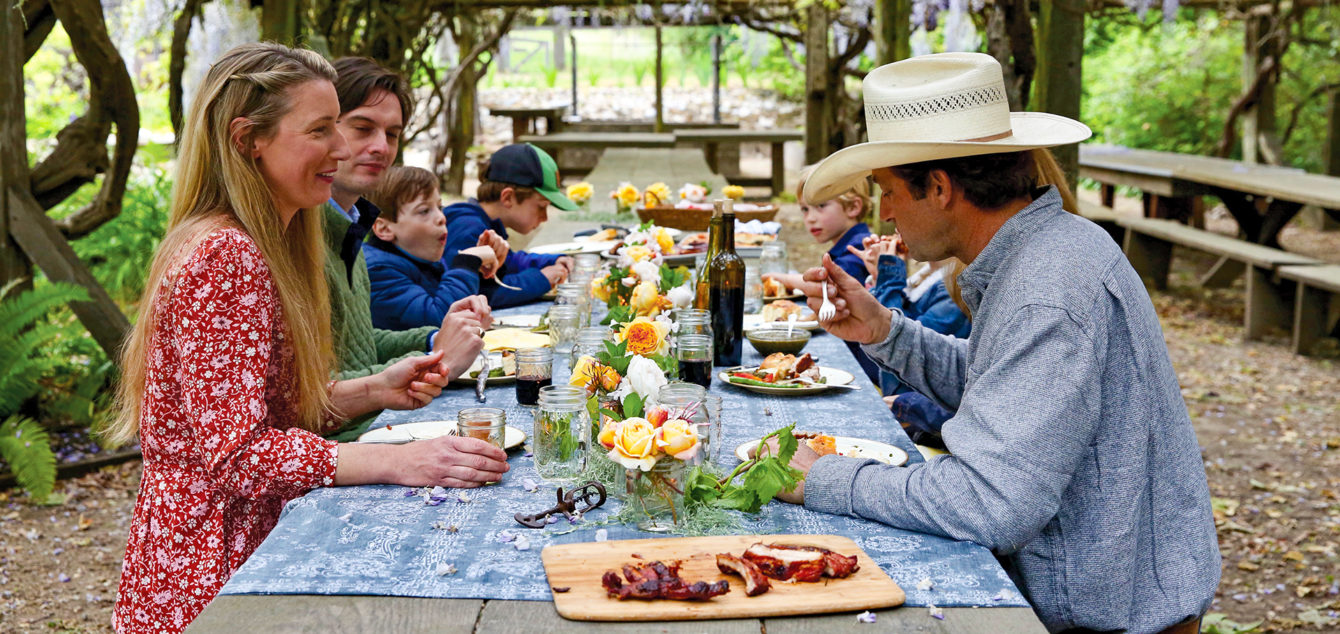
As a busy working mother, how do you incorporate “ranch to table” into your own family’s diet? Any school lunch ideas to share? Fast dinner options?
Our family lives and eats seasonally here on the ranch, so even though kids’ lunches aren’t always fancy, I try to build them around the vegetables and fruits growing in our garden. I believe that a “ranch table” is more of a feeling and a way of life. It is all about enjoying simple, fresh food with friends and family. It does not need to be complicated. It is all about enjoying a meal together. I always try to add color to school lunches—lots of fruits and vegetables that the boys enjoy, with cheese. And they do love a pesto chicken sandwich. I try to make pesto in huge batches over the summer to last throughout the year because my kids love it.
What do you most look forward to working with during the holiday season? Any tips you can provide to our readers for incorporating fall-winter produce into their holiday meals?
During the fall, I love to work with apples and pears, especially in baking. There are so many incredible ways to use them—from jams to pies. I like to use cinnamon and nutmeg and other spices to really bring out the seasonal flavors. And I am excited for persimmon season! I love making persimmon bread with the Hachiya persimmons and also adding the Fuyu persimmons into salads.
Your family’s roots run deep in California. Are there any hot-button issues that most resonate with you? How can Golden State readers best help protect our ranch and farm resources and people?
I think it is important to support as many of our local farmers and ranchers as possible. Go to your local farmers markets—not only will you be supporting these amazing, hardworking farms but you will also be so inspired by all the fresh ingredients.
Check Out California’s Coolest Wine Country Castles
These grand California castles expertly blend history, luxury, and winemaking.
These Californians are Stepping Up to Save America’s Wild Mustangs
They include a young competitive horsewoman, a daredevil cowgirl and a 1970s rock musician.
This New North Hollywood Hot Spot Has an Ax to Grind
It’s the latest in sharp shooting.
Get the Latest Stories




